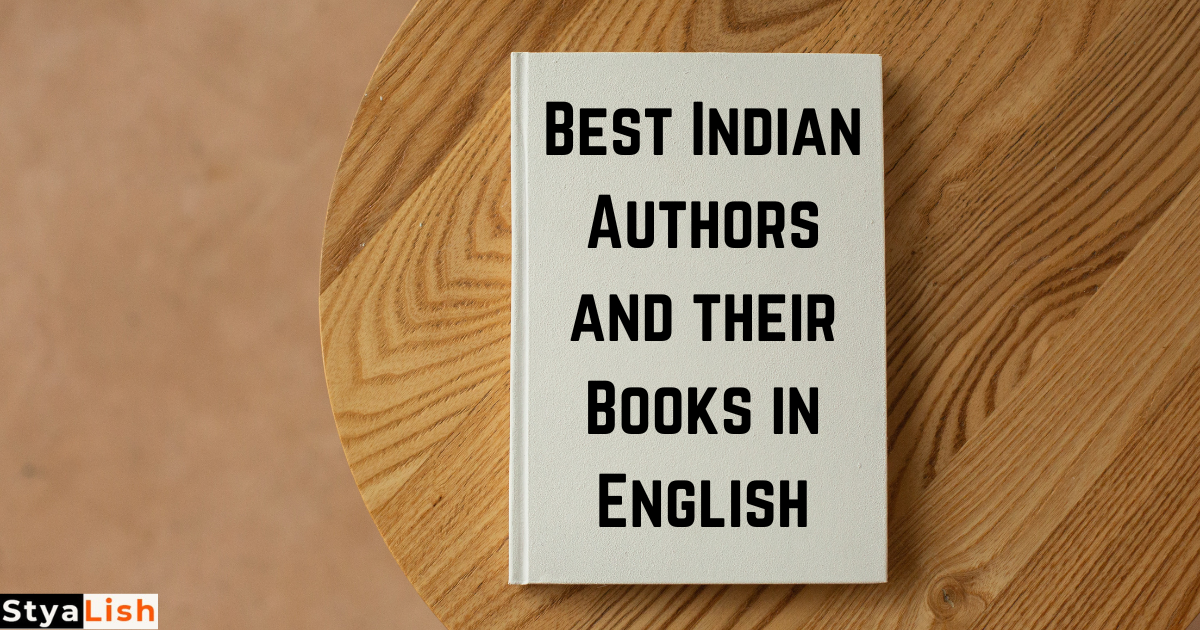Indian literature is a diverse and rich body of works written by Indian authors. Origin or works that explore Indian themes and cultural identities. And Indian literature encompasses various genres, from poetry and fiction to memoirs and essays.
15 Best Indian Authors and their Books in English
Indian literature in English has gained global recognition for its unique blend of cultural, linguistic, and historical influences. This article highlights some of the best Indian authors and their works in English. And it will help readers discover new voices and perspectives.
1. Salman Rushdie – “Midnight’s Children.”
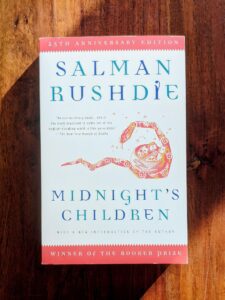
Salman Rushdie is an acclaimed Indian-British author known for his richly imagined and inventive storytelling.”Midnight’s Children” is perhaps his most famous work, first in 1981. And it won the Booker Prize and the James Tait Black Memorial Prize.
The novel tells the story of Saleem Sinai, a boy born at the moment of India’s independence, and follows his journey as he navigates the complexities of postcolonial India. However, his works continue as essential contributions to the canon of Indian authors writing in English.
2. Arundhati Roy – “The God of Small Things.”
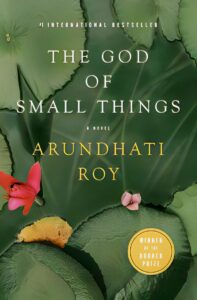
Arundhati Roy is a famous Indian author, essayist, and political activist.
The novel is set in the southern Indian state of Kerala and tells the story of the twin siblings Rahel and Estha. And who grow up in a society mark by caste, class, and gender inequalities.
The God of Small Things is one of the best English books by Indian authors. And has had a lasting impact on Indian and global literature.
3. Vikram Seth – “A Suitable Boy.”
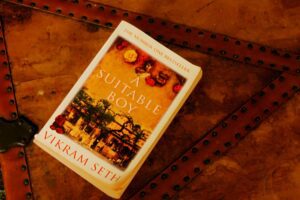
Vikram Seth is a prominent Indian author, poet, and travel writer known for his lyrical and expansive writing style.
“A Suitable Boy” is his most famous work of 1993. It tells the story of a young woman Lata and her quest for a suitable husband in post-independence India.
A Suitable Boy is widely one of the best English books by Indian authors. Everyone appreciates his sweeping narrative, social commentary, and sensitivity to the complexities of human relationships.
4. Jhumpa Lahiri – “Interpreter of Maladies.”
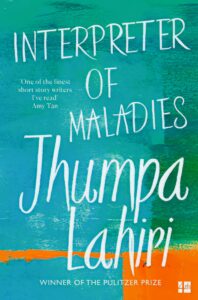
Jhumpa Lahiri is an Indian American author and Pulitzer Prize winner. She is also known for her elegant prose and insightful portrayal of the immigrant experience.
“Interpreter of Maladies” is her debut collection of short stories of 1999. And which won the Pulitzer Prize for Fiction in 2000.
Lahiri has several other acclaimed works, including English novels. “The Namesake” and the short story collection “Unaccustomed Earth” and has been recognized as one of the most influential voices in contemporary English literature. You can also read different books to change your mindset.
5. R.K. Narayan – “The Guide.”
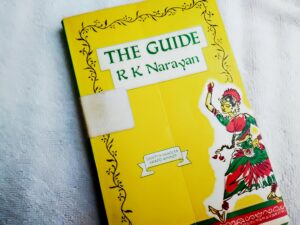
R.K. Narayan was one of the Indian authors and pioneers of Indian literature in English. His humorous and compassionate portrayal of small-town life in South India is his achievement.
“The Guide” is one of his most famous works from 1958. And tells the story of a tour guide Raju who becomes a spiritual leader and then a fraud in a small Indian village.
6. Kiran Desai – “The Inheritance of Loss.”
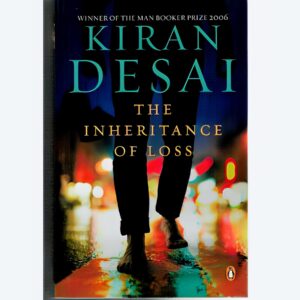
Kiran Desai is an Indian author known for her powerful and poignant storytelling. An exploration of identity, displacement, and cultural conflict themes embraces her.
Desai also wrote another critical novel, “Hullabaloo in the Guava Orchard.” And several short stories and essays, cementing her place as one of the most critical and influential Indian authors of her generation.
7. Amitav Ghosh – “The Shadow Lines.”
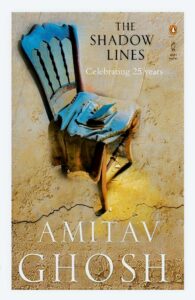
Amitav Ghosh is an Indian author known for his rich storytelling. An exploration of identity, migration, and historical memory themes.
The Shadow Lines is his second novel, published in 1988. It tells the story of an Indian family living in Calcutta and their experiences of love, loss, and political violence across three generations.
They have earned him a reputation as one of the most critical and influential Indian authors of his generation, with his writing continuing to inspire and challenge readers worldwide.
8. Rohinton Mistry – “A Fine Balance.”
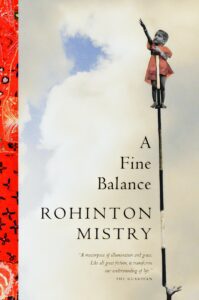
Rohinton Mistry is an Indian-Canadian author known for his powerful and emotionally resonant storytelling and his exploration of identity, history, and social justice themes.
Mistry has written several other critically acclaimed English novels, including “Such a Long Journey” and “Family Matters,” as well as short stories and essays that continue to engage readers with his powerful and poignant insights into the human condition.
9. Shashi Tharoor – “The Great Indian Novel.”
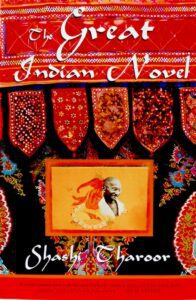
Shashi Tharoor is an Indian author, politician, and diplomat known for his eloquence and incisive explorations of Indian history, culture, and politics.
“The Great Indian Novel” is one of his most celebrated English novels, published in 1989, which retells the story of India’s independence and post-independence history through various literary devices, including allegory, parody, and satire.
The Great Indian Novel is widely regarded as a classic of contemporary Indian literature.
10. Aravind Adiga – “The White Tiger.”
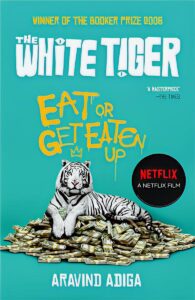
Aravind Adiga is one of the Indian authors. His sharp and biting satire and his exploration of class, power, and corruption themes in contemporary India make him stand out.
The novel is praised for its biting social commentary, its vivid and memorable characters, and its powerful exploration of the forces that shape contemporary India.
“The White Tiger” won the Man Booker Prize in 2008 and has been widely read and appreciated for its incisive and often unflinching portrayal of the realities of contemporary Indian society.
11. Anita Desai – “Clear Light of Day”
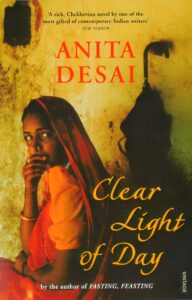
Anita Desai is one of India’s most respectful Indian authors. Insightful and poignant explorations of the complexities of Indian life, identity, and culture are her strengths.
Clear Light of Day came in 1980, which tells the story of a family in Old Delhi. Grappling with the legacy of the Partition and the challenges of modernity.
Clear Light of Day is a masterpiece of contemporary Indian literature. And has won numerous awards and accolades for its intelligent and compassionate exploration of the human condition.
12. Chitra Banerjee Divakaruni – “The Mistress of Spices.”
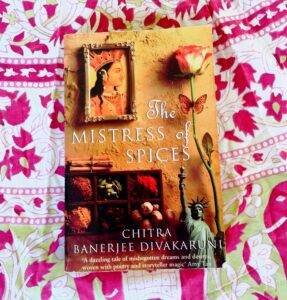
Chitra Banerjee Divakaruni is a prominent Indian-American author and poet. Her poignant and insightful explorations of the Indian diaspora experience illuminate the novel.
“The Mistress of Spices,” in 1997, tells the story of Tilo, a woman who trains in the art of spices. And becomes a mystical “Mistress of Spices” who helps people with her magical abilities. These are the best English books of Indian authors, and you can read different other
The novel’s lyrical and evocative prose and vivid and imaginative portrayal of the mystical world of spices and their powers.
13. Nayantara Sahgal – “Rich Like Us”
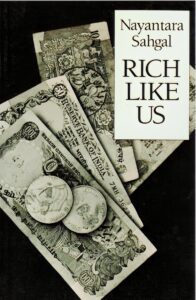
Nayantara Sahgal is a prominent Indian author and political commentator. And everyone recognizes her for insightful and often incisive explorations of modern India’s political and social realities.
Rich Like Us is one of her works in fiction from 1985. And it tells the story of two women from very different backgrounds – one a wealthy socialite and the other a poor activist. Her lives intersect in unexpected ways against the backdrop of India’s turbulent political landscape in the 1970s and 80s.
14. Khushwant Singh – “Train to Pakistan.”
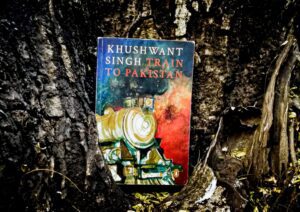
Khushwant Singh was an Indian author and journalist known for wit, satire, and incisive social commentary.
“Train to Pakistan” first came in 1956 and is one of his most influential works of fiction. And it tells the story of the Partition of India in 1947 through the eyes of the residents of a small village on the border between India and Pakistan.
The novel speaks about its vivid and powerful portrayal of the human cost of Partition. And its exploration of themes of identity, belonging, and religious conflict in modern India.
15. Siddhartha Mukherjee – “The Emperor of All Maladies: A Biography of Cancer.”
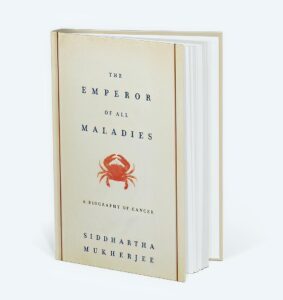
Siddhartha Mukherjee is an Indian-born American physician, scientist, and writer. His work is in the field of oncology and his contributions to popular science writing.
The Emperor of All Maladies: A Biography of Cancer, 2010, is a sweeping, epic history of cancer. And it tells the story of this disease, from its earliest known appearances in human history to the latest breakthroughs in treatment and research.
The book spotlights a thoughtful analysis of how cancer shapes human history. And also forms culture for its engaging and accessible writing style that makes complex scientific concepts understandable.


